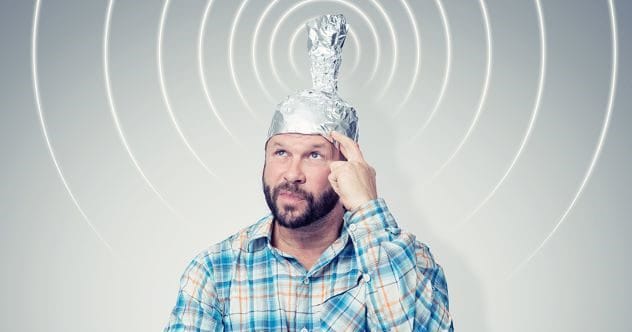Why do some people believe in conspiracy theories? Research points to several reasons, categorizing them into epistemic, existential, and social motives. Understanding these can shed light on why these beliefs persist and their potential impact.
Epistemic motives involve the need for explanations, existential motives relate to feeling safe, and social motives involve belonging and self-image. But what are the specific reasons people find themselves drawn to conspiracy theories?
Let’s delve into the top 10 reasons people believe in conspiracy theories.
1. The Need to Understand Complex Situations
Life can be confusing, and so can many events that occur. For some, this complexity leads to feeling lost. Conspiracy theories offer an appealing solution by connecting the dots and providing clarity.
People crave understanding and consistency. When faced with conflicting information, some seek underlying causes hidden from public view to make sense of things. This helps them feel prepared and informed against hidden agendas.
2. Thrilling Gameplay
In a world where science has explained much, the idea of knowing secret, especially sinister, information can be exciting. This insider knowledge feels like a thrilling game.
Conspiracy theorists often exhibit traits such as suspicious thinking, eccentricity, and a need to feel special. They might also perceive patterns where none exist, adding to the thrill of uncovering hidden truths.
3. The Sense of Belonging to a Special Group
Loneliness and social isolation can drive people to seek connection. Those who feel alienated might form their own understanding of reality, creating a shared reality that provides a sense of belonging.
This need to belong leads people to associate with like-minded individuals, reinforcing their beliefs. Online communities amplify this effect, creating echo chambers that exclude differing viewpoints and strengthen group identity.
4. A Lack of Trust and Heightened Anomie
Distrust in news media, politicians, and experts is a key factor. Conspiracy theorists often believe these sources have ulterior motives, leading them to reject mainstream narratives.
This distrust is often coupled with anomie, the feeling that things are worsening. Such deep suspicion can create a cycle where a lack of trust leads to conspiratorial beliefs, further fueling suspicion.
5. Pareidolia
Pareidolia, the tendency to see meaningful patterns in random events, plays a role. People connect unrelated stimuli, driven by a psychological need for certainty and control.
Those who trust conspiracy theories often have schizotypal traits. They find significance in coincidences, reinforcing their belief that nothing is truly random.
6. Confirmation Bias
Confirmation bias involves interpreting information in a way that confirms existing beliefs, reinforcing those views. This explains why conspiracy theorists believe accounts rejected by experts.
People tend to seek and accept evidence that supports their beliefs, ignoring contradictory information. This is why individuals gravitate to online sites that match their pre-existing prejudices.
7. Political Ideology
Political ideologies often fuel conspiracy theories. News media that favor particular candidates might promote theories aligning with their audience’s political orientation.
The desire for social acceptance is a significant driver. Sources of social influence, such as major news media, play a critical role. Alleviating anxiety further promotes belief in politically motivated conspiracy theories.
8. Uncritical Acceptance
Believers often ignore a lack of evidence, disregarding facts refuting their views. They accept claims at face value, regardless of conflicting information.
Emotion, rather than reason, often drives this uncritical acceptance. A need for certainty or closure, known as teleologic bias, makes people believe everything happens for a greater purpose.
9. Attitude
An exaggerated perception of intellectual prowess can lead to belief in conspiracy theories. People overestimate their ability to discern truth, failing to appreciate their intellectual limits.
Adopting intellectual humility and deferring to experts can prevent falling for conspiracy theories. Self-awareness about one’s own biases and the complexity of the subject matter is crucial.
10. Evolutionary Byproducts
Evolutionary psychology suggests that conspiracy theories might be byproducts of evolutionary processes. Pattern recognition, agency detection, and threat management abilities have survival value but can make people susceptible to conspiracy theories.
In ancient times, suspicion of powerful coalitions had adaptive significance. However, today, the adaptive significance of these byproducts is debatable.
Understanding why people believe in conspiracy theories involves recognizing the complex interplay of psychological, social, and cognitive factors. By addressing these underlying needs, we can foster critical thinking and help individuals navigate the complex information landscape.
What are your thoughts on conspiracy theories? Leave your comment below!










